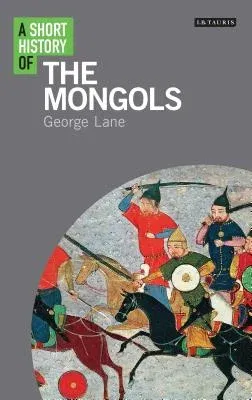George Lane
(Author)A Short History of the MongolsPaperback, 30 March 2018

Qty
1
Turbo
Ships in 2 - 3 days
In Stock
Free Delivery
Cash on Delivery
15 Days
Free Returns
Secure Checkout

Part of Series
Short Histories
Part of Series
I.B.Tauris Short Histories
Print Length
256 pages
Language
English
Publisher
I. B. Tauris & Company
Date Published
30 Mar 2018
ISBN-10
1780766068
ISBN-13
9781780766065
Description
Product Details
Author:
Book Format:
Paperback
Country of Origin:
US
Date Published:
30 March 2018
Dimensions:
21.34 x
13.72 x
1.52 cm
ISBN-10:
1780766068
ISBN-13:
9781780766065
Language:
English
Location:
New York
Pages:
256
Publisher:
Weight:
249.48 gm